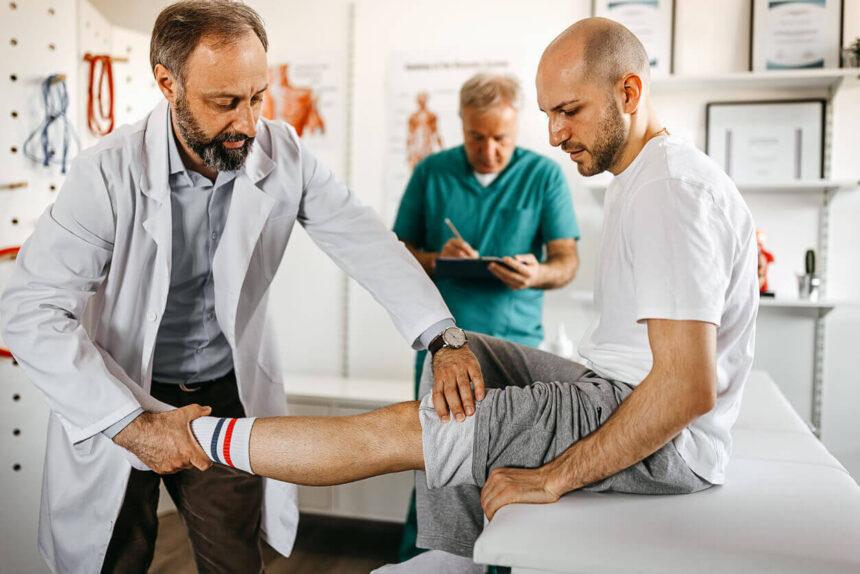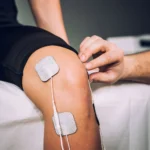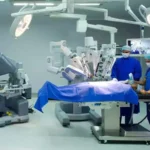From sprains and fractures to ligament tears, sports-related injuries can sideline even the most dedicated athletes. An orthopedic surgeon specializes in diagnosing, treating, and preventing musculoskeletal injuries that affect bones, joints, and muscles. Understanding the role of these musculoskeletal surgeons in sports-related injuries helps athletes and active individuals make informed decisions about treatment, recovery, and returning to peak performance safely.
What Are Common Sports Injuries?
Sports injuries can be categorized into two main types: acute injuries that occur suddenly during activity, and overuse injuries that develop gradually over time. Acute injuries include fractures, dislocations, and torn ligaments like ACL tears. These injuries often require immediate medical attention and may need surgical intervention.
Overuse injuries develop gradually due to repetitive motions or training. Common examples include tendonitis, stress fractures, and rotator cuff tears. An orthopedic surgeon can identify these conditions early and recommend treatment to prevent them from worsening.
How Are These Injuries Diagnosed?
Accurate diagnosis is a key component of effective orthopedic care, and advanced imaging techniques are necessary tools in this process. Key methods include:
- X-rays: Used to evaluate bone fractures, joint alignment, and structural abnormalities.
- Magnetic Resonance Imaging (MRI): Effective in examining soft tissues, such as ligaments, tendons, and cartilage.
- Computed Tomography (CT) Scans: This scan provides detailed cross-sectional images of bones and joints for complex cases.
- Ultrasound: Used for assessing soft tissue injuries and guiding specific procedures, such as injections.
- Bone Scans: These help in identifying bone infections, fractures, or tumors.
Utilizing these advanced diagnostic tools enables orthopedic physicians to precisely identify the nature and extent of injuries or conditions.
What Treatment Options Are Available?
Many sports injuries can be treated without surgery through conservative approaches. Non-surgical treatments often include the following:
- Rest: Allowing the injured area time to heal by avoiding activities that may exacerbate the injury.
- Physical Therapy: Designed to restore strength, flexibility, and function to injured areas.
- Medications: These are used to reduce pain and inflammation, aiding in recovery.
- Specialized Injections: Options like platelet-rich plasma (PRP) or stem cell therapy promote tissue healing.
- Bracing or Casting: This protects injured areas and promotes proper healing by immobilizing the affected region.
When conservative treatments are not sufficient, surgical interventions may be recommended by the orthopedic surgeon. Minimally invasive techniques, such as arthroscopic surgery, enable repair through small incisions, resulting in reduced pain and quicker recovery. For severe or complex injuries, open surgery may be required to restore normal function and stability.
How Do Athletes Recover Safely?
A comprehensive rehabilitation program helps athletes regain the strength, flexibility, and coordination needed for their specific sport. An orthopedic surgeon works closely with physical therapists to develop individualized recovery plans. The rehabilitation process progresses through several phases, starting with pain control and basic movement, then advancing to strength building and sport-specific exercises. The gradual approach helps prevent reinjury and makes sure that athletes are truly ready to return to competition.
Return-to-play decisions require careful evaluation of multiple factors, including the progress of healing, strength levels, and psychological readiness. An orthopedic specialist will assess these factors and provide clear guidance for when it’s safe to resume activities. They also offer advice about injury prevention strategies to reduce the risk of future problems.
Consult an Orthopedic Surgeon Today
Orthopedic surgeons provide comprehensive care for sports-related injuries, from initial diagnosis to complete recovery. Their specialized knowledge of the musculoskeletal system and understanding of sports-specific injury patterns make them valuable partners in your healthcare team. If you’re dealing with a sports injury, contact a qualified orthopedic surgeon near you to schedule a consultation and explore your treatment options.





